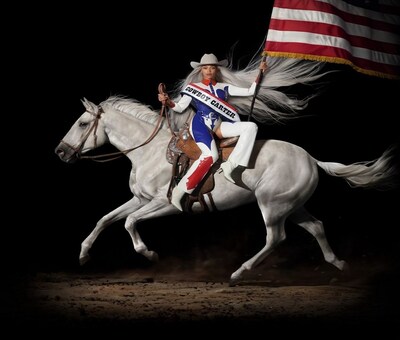Since its formation, America has continually diminished, degraded, devalued Black American culture while simultaneously being integral to America culture.
For many Black Americans, their identity as “American” has always been problematic. This dilemma stems from the fact that Black Americans have truly and historically never been seen as “equal” to their white counterparts, making their identity as “American” counterintuitive to being black in America.
This abjection of blackness in America, led to black individuals and their talents to inherently be given less attention to their white counterparts.
White America has historically been obsessed with “weeding” black influence in general. Some of the earliest laws that specifically sought to “control” Black people’s individual and cultural expression were formed during slavery.
However, just by looking and tracing some of the foundation of America’s earliest cultural pastimes, dress, cuisine, dialect, and most prominent of them all music, has its direct roots to Black Americans. This poses a question: Why is America so reliant on anti-blackness that frames Black people as a monolith and devalues them on the basis of being black, however, so integral to American culture, becoming the most influential form consumed by millions?
Black American artists and their rise to fame has always been a double edge sword with many Black artists “toning down” their political beliefs or acknowledgement of racism along with their work to be more “palatable” (aka. Appease white audiences) in order to be accepted.
Many White Americans and other non-black minorities turn to Black culture as a means to “rebel” or stand against the conservative upbring.
However, what does it mean for Black Americans when non-Black people resort and consume their culture as an act of self described defiance against whatever values with which they were brought up. For many non-black Americans, Black American culture is escapism. An escapist form of media that “rebels” against everything that America devalues (which is the mere existence of Black people in general).
Artists, including Prince, Rihanna, and Latto, whose racial ambiguity allowed for more broader appeal by audiences, showcasing how Black artists are often pitted into a caste system where the closer to whiteness equates success.
However, Black artists also face the fact that their work is becoming increasingly commodified. Industries have taken notice in the last few decades that it has become “trendy” to use black aesthetics and display Black artistry for mass audiences. Industries, including producers of music, rely on black artistry to make millions. But with this increasing rise of the economic value of Black American culture amongst non-black consumers, this rise poses a question on its impacts on the Black community and whether or not the mass “acceptance” and commodification of Black American culture is truly benefiting Black Americans.
This questioned ties into Beyonce’s recently released album titled “Cowboy Carter” that has become a cultural turning point in the music industry due to it being a country album.
Country music had its early development in Black communities. However, in a classic American style the genre was heavily whitewashed by white Country artists in the 50s. Since then, Country music has been dominated by White artists and subsequently erased the genre’s roots in Black culture.
The genre has been unabashedly known for its blatant racism against any Black artists such as Lil Nas X who’s 2019 song “Old Town Road” led to discussions surrounding the absence of Black country artists that were in the media. Beyonce herself faced backlash when she performed along with the Dixie Chicks in 2016.
The backlash against Beyonce’s showcases the irony White Country music fans claiming Country is only for “White artists” despite having its direct roots to Black Americans. “Cowboy Carter ” is a slap in the face to the persistent whitewashing of music genres that have historically begun in Black communities.
However, Beyonce’s embrace of a niche part of Black American culture contributes to the growing superficial representation and accolades by prominently white media that celebrate Black culture but behind closed doors do little to uplift, listen, or value Black artists. Many media outlets released articles stating that Beyonce had become the first Black artist in history to occupy the top 15 of the Country Apple Music Chart.
However, by stating that she is the “first Black artist” is counter-intuitive due to country music being created by Black people and just reinstates the fact that recognition for Black artists is based off of them gaining some award that was created by institutions that have seen Black artists and their work as nothing but commodities.
This constant reference to her being the “first Black artist” or “first Black women” just reinforces the fact that music genres, such as Country, are inherently white and that Beyonce and other Black artist’s are now “catching up” up to their more privileged white counterparts despite being the foundation of Country music.
Black culture and the Black experience in America is unique and varies. However, Black culture is becoming increasingly monopolized by people who do little to serve their communities, despite making a profit off of them and being consumed by audiences who care little about Black issues.

